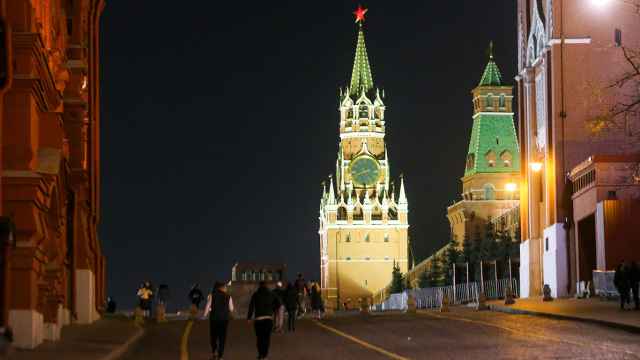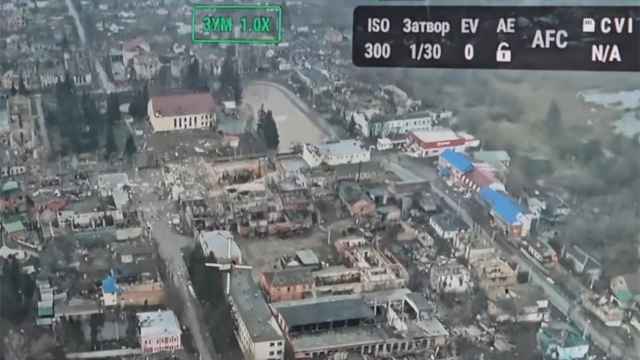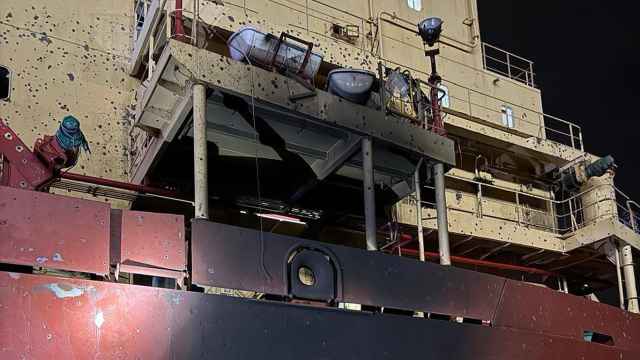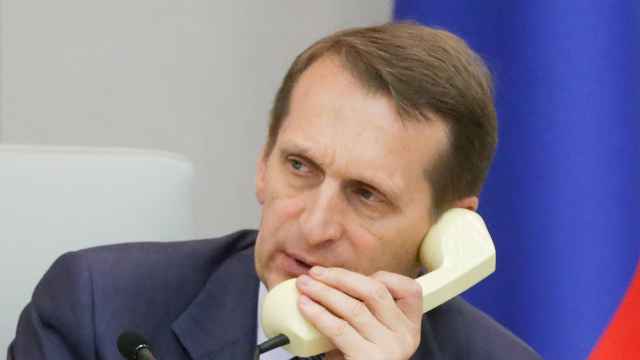State Duma deputies have passed a set of conditions they say are required for the country to honor the New START nuclear arms pact with the United States, reacting to a similar resolution by the U.S. Senate.
The Duma voted 349-57 with two abstentions to pass a ratification bill of the New START treaty in the second of three readings Friday.
The house is to hold the final vote on Jan. 25, after which the treaty will go to the Federation Council for final approval. Prospects for the pact's passage are not in doubt, but deputies want to respond to the Senate resolution with a similar motion.
That resolution said the treaty should not restrict U.S. plans to develop a missile defense system. In response, the Duma ratification bill says the treaty can only be fulfilled if emerging missile defenses don't erode the Russian nuclear deterrent.
The Russian draft bill also emulated the Senate resolution that mentioned increased funding for the U.S. nuclear arsenal by emphasizing the need to modernize Russia's nuclear forces.
Neither the Senate nor the Duma resolution would affect the text of the treaty, which is a centerpiece of U.S. President Barack Obama's efforts to "reset" ties with Russia.
"The treaty is fully balanced and fully conforms with Russia's national interests," Konstantin Kosachyov, head of the Duma's International Affairs Committee, told the deputies. "I have not the slightest doubt that the Russian Federation will treat the agreement with the highest degree of responsibility."
New START would limit each country to 1,550 strategic warheads, down from the current ceiling of 2,200 and also re-establish a system for monitoring that ended with the expiration of a previous arms control pact.
Obama pressed strongly for the pact's approval, and Democrats sought to appease some Republican senators by allowing them to raise their concerns about the treaty in the accompanying resolution.
In response, the Duma deputies felt obliged to outline their own interpretation of the treaty's provisions. The Foreign Ministry helped them draft the ratification bill.
"Our parliament must respond to the interpretations that distort the sense of the treaty," Foreign Minister Sergei Lavrov told the Duma on Friday.
Lavrov on Friday also dismissed the Senate call for a quick start of U.S.-Russian talks to cut short-range nuclear weapons, saying that such talks must also include potential weaponization of space and conventional armaments. "We can conduct further talks only if we take all these factors into account," he said.
A Message from The Moscow Times:
Dear readers,
We are facing unprecedented challenges. Russia's Prosecutor General's Office has designated The Moscow Times as an "undesirable" organization, criminalizing our work and putting our staff at risk of prosecution. This follows our earlier unjust labeling as a "foreign agent."
These actions are direct attempts to silence independent journalism in Russia. The authorities claim our work "discredits the decisions of the Russian leadership." We see things differently: we strive to provide accurate, unbiased reporting on Russia.
We, the journalists of The Moscow Times, refuse to be silenced. But to continue our work, we need your help.
Your support, no matter how small, makes a world of difference. If you can, please support us monthly starting from just $2. It's quick to set up, and every contribution makes a significant impact.
By supporting The Moscow Times, you're defending open, independent journalism in the face of repression. Thank you for standing with us.
Remind me later.





